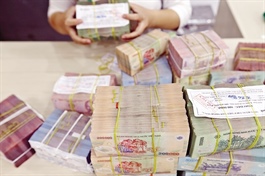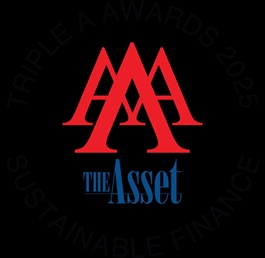E-commerce platforms to pay taxes on behalf of sellers
E-commerce platforms to pay taxes on behalf of sellers
The Ministry of Finance (MoF) has proposed that all VAT and personal income tax of sellers on e-commerce platforms are deducted as soon as the order is successfully confirmed and paid for.
|
E-commerce platforms will have to deduct and pay taxes on behalf of sellers from April 1. The MoF has already submitted a draft decree to the government on tax management for business activities on e-commerce platforms and digital platforms of business households and individual businesses.
All online retail platforms are allowed to deduct and pay VAT and personal income tax of sellers for each transaction on the platform. The above taxes will be deducted as soon as the order is successfully confirmed, and the buyer accepts payment.
The tax amount is determined as a percentage of the revenue of each completed transaction. For example, VAT on goods is 1 per cent, services 5 per cent, and transportation and services associated with goods 3 per cent.
As for personal income tax for resident individuals, the tax rate is 0.5 per cent for goods, 2 per cent for services, 1.5 per cent for transportation and services associated with goods. Non-resident individuals are subject to personal income tax on online platforms at 1 per cent for goods, 5 per cent for services, and 2 per cent for transportation and services associated with goods.
In the case of the platform management organisation being unable to determine whether the transaction is goods or services, the deductible tax amount will be at the highest rate.
According to the MoF, the Vietnamese e-commerce market is growing rapidly from $16.4 billion in 2022 to $20.5 billion in 2023 and $25 billion last year.
However, the total revenue from e-commerce business activities of domestic enterprises, business households and foreign suppliers without permanent establishments in Vietnam only accounts for about 20 per cent of the e-commerce market revenue scale, and this proportion is going down.
From 2022 to 2024, the total tax revenue of organisations and individuals with e-commerce business activities went up from VND83 trillion ($3.32 billion) to VND116 trillion ($4.64 billion). In which, the revenue from business households and individuals was not much, from VND183 billion ($7.3 million) in 2022, VND67 billion ($2.68 million) in 2023, to be expected to reach VND2.5 trillion ($100 million) in 2024.
Several businesses have yet to declare and pay taxes following the tax law on revenue from e-commerce activities.
Meanwhile, following international practices, the MoF stated in its draft decree that the largest e-commerce platforms in the world, such as eBay, Amazon, Bestbuy are currently performing the obligation to calculate VAT for each order, then pay it to the budget on behalf of the seller.
When the buyer places an order, a provisional tax amount will be added to the payment. This tax amount will be accurately determined in the order confirmation email sent to the buyer. Information on regulations on calculating and paying taxes on behalf of the seller is often publicly announced by e-commerce websites.
The MoF also said tax authorities in developed countries, such as the United Kingdom, the United States, Australia, and Germany, have been implementing measures to collect sales taxes from e-commerce platforms since 2018. These countries have enacted laws requiring e-commerce platforms to determine the seller's tax obligations and collect and submit them to the tax authorities.
In China, in addition to collecting and paying taxes on behalf of sellers, tax authorities also require information about transactions and taxes for at least three years.
The Organisation for Economic Cooperation and Development recommends that countries should unify their methods, leaving digital platforms with full responsibility for determining the amount of tax payable on orders.
- 18:10 28/03/2025





























